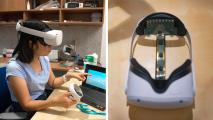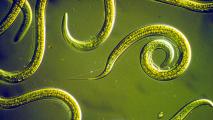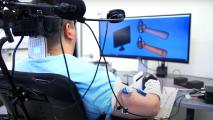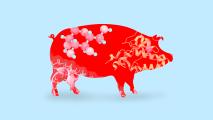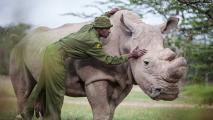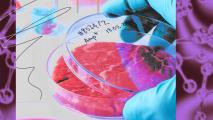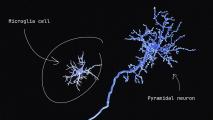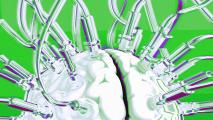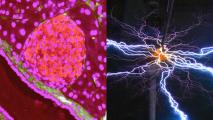
Biotech
Human history has been all but defined by death and disease, plague and pandemic. Advancements in 20th century medicine changed all of that. Now advancements in 21st century medicine promise to go even further. Could we bring about an end to disease? Reverse aging? Give hearing to the deaf and sight to the blind? The answer may be yes. And soon.
More
Scientists make pain relievers like Tylenol from pine trees rather than fossil fuels
Chemists have shown how to manufacture ibuprofen and acetaminophen using a waste product from the forestry and paper industries.
Scientists tweak Meta VR headset to measure brain activity
A modified VR headset that records brain activity reveals how being immersed in VR impacts people on a neurological level.
Weight-loss drug cut the risk of heart attack and stroke by 20% in large trial
The weight-loss drug semaglutide reduced patients’ risk of heart attacks, strokes, or death from heart disease by 20% in a large trial.
Nematodes survive 46,000 years on ice
A pair of nematodes from the Pleistocene survived in the Siberian permafrost by entering a survival state known as cryptobiosis.
Fragile X syndrome often results from improperly processed genetic material
Researchers discovered that the mutated gene responsible for fragile X syndrome is active in most people with the disorder, not silenced.
Study finds tracking brain waves could reduce post-op complications
Researchers found brain wave signatures that could help determine when patients are transitioning into a deep state of unconsciousness.
AI-powered brain implant restores feeling, movement in man with paralysis
A first-of-its-kind AI-powered brain implant has restored movement and feeling in a New York man with quadriplegia since 2020.
Targeted therapy kills every type of cancer in the lab
City of Hope researchers are trialing a targeted therapy shown to kill more than 70 types of cancer in preclinical tests.
Want to lose weight? Try eating like a pig
From pig studies, we’ve learned that calorie counting matters, and eating many smaller meals is preferable to a few larger ones.
Northern white rhinos are set for extinction. Only a technological moonshot can save them.
Project BioRescue aims to create the reproductive technology necessary to resurrect the northern white rhino. But time is running out.
Australian military is funding a computer chip merged with human brain cells
The Australian military is funding research into “organoid intelligence” that involves stimulating lab-grown mini-brains with electrodes.
Lab-grown meat techniques aren’t new
Cell cultures are common tools in science, but bringing them up to scale to meet society’s demand for meat will require further development.
Immune cells in the brain may reduce damage during seizures and promote recovery
Microglia perform many functions in the brain, and their role in seizures is unclear — a new study in mice aims to find out more.
Scientists monitored the brains of 4 dying patients. Here’s what they found
Researchers found a surge of neurophysiological activity in the dying human brain, including in regions associated with conscious processing.
These giant viruses are unlike any we’ve ever seen before
Scientists have discovered a variety of “giant viruses” unlike any ever seen before in Massachusetts’ Harvard Forest
Brain-computer interfaces could let soldiers control weapons with their thoughts
Brain-computer interfaces raise many ethical questions about how and whether they should be used for certain applications — including war.
Why death matters
Reframing life in terms of death reveals some of the biggest philosophical problems with how we think about living systems.
New study shows how electricity can turn on genes
A prototype wearable demonstrates a novel way to trigger gene expression: by zapping cells with electricity.
What lies beneath our irrational decisions
In new book, an MIT scholar examines how game-theory logic underpins many of our seemingly odd and irrational decisions.
AI will soon tell doctors how to predict your future health
A new AI can can analyze X-rays for a important predictor of heart disease with a high degree of accuracy.
Get inspired with the most innovative stories shaping the world around us.














